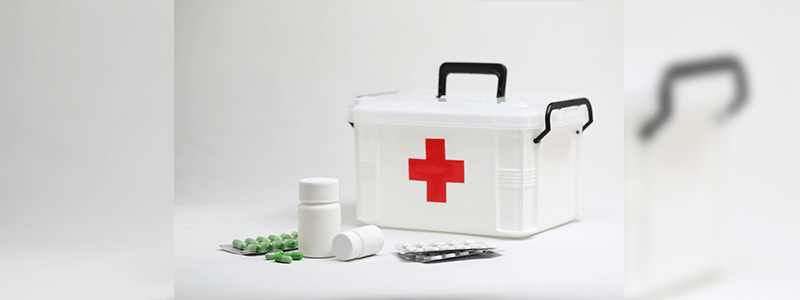Lawyers Discuss Over Talcum Powder Cancer Lawsuits

Lawyers met with the U.S. District Judge presiding over the litigation this week, to discuss the next steps to preparing cases for trials of the thousands of talcum powder cancer lawsuits.
Currently, Johnson & Johnson (J&J) faces more than 16,500 Baby Powder and Shower to Shower lawsuits filed by women nationwide. All the lawsuits allege the presence of talc and asbestos particles in the company's baby powder product has resulted in ovarian cancer and other injuries among the women.
All the talcum powder lawsuits are centralized and brought before Judge Freda L. Wolfson in the District of New Jersey for further developments of the multidistrict litigation (MDL). Last month, Judge Wolfson rejected J&J's plea to exclude witness testimony considering the Daubert standard for the development of the cases.
Last week, the lawyers met Judge Wolfson to discuss further proceedings of the MDL, and both sides were keen on moving the cases toward trials expeditiously. The manufacturers urged the court for early trial dates, whereas the plaintiffs insisted that there should be a specified investigation before the trials.
If the bellwether trials fail to settle, then the lawsuits will go back to U.S. District Courts nationwide with individual trial dates, as indicated by the court.
Johnson & Johnson (J&J), in a quarterly filing with the U.S. Securities and Exchange Commission, disclosed that it is facing a joint investigation by at least 41 states, examining how the company marketed its Baby Powder and other talcum powder products.
The probe involving 41 states is the latest legal dispute J&J would be facing, as its products are already subject to thousands of lawsuits pending in the courts nationwide, each claiming that the manufacturer knew for decades that their products contained asbestos and increased the risk of cancer, yet failed to warn consumers.
Meanwhile, last week, the U.S. District Judge Freda L. Wolfson, presiding over coordinated discovery and pretrial proceedings, issued an opinion, rejecting the efforts made by J&J to exclude plaintiffs’ expert witness testimony, allowing the talcum lawsuits to proceed further.
In the past, J&J suffered a series of massive losses, at trial in state courts, after failing to exclude plaintiffs expert witnesses under the federal Daubert standard. The company is expected to face substantial pressure over negotiation on talcum powder lawsuits settlements or could face years of trials throughout the federal court system.
Earlier, U.S. District Judge Freda L. Wolfson issued an opinion, rejecting the efforts made by Johnson & Johnson (J&J) to exclude plaintiffs' expert witness testimony, allowing more than 17,000 talcum lawsuits to proceed further.
The judge issued a 141-page opinion determining that expert opinions offered by plaintiffs are sufficiently reliable and sound. J&J always defended the safety of its widely used talc-based products, arguing that general causation experts should be prevented from testifying at the trial.
The judge listened to the challenges faced by the parties for the admittance of expert witness testimony under the federal Daubert standard before scheduling the cases for trial. It requires that the opinions meet an evidentiary standard to ensure they are reliable enough to present to a jury.
The opinions to be presented by the plaintiffs' experts have also been limited. Talcum powder can cause cancer, a report based on epidemiological studies is the only general causation testimony to be allowed.
24 Lawyers In Leadership Roles Identified For Zantac Lawsuits

The U.S. District Judge conducted virtual online interviews of more than 60 attorneys to choose 24 plaintiffs' lawyers for the proceedings of Zantac lawsuits.
According to research, the use of Zantac has side effects on the users like exposure to cancer. Sanofi the manufacturing company of Zantac currently faces 200 product liability lawsuits with similar allegations that the drug has developed breast cancer, testicular cancer, kidney cancer, bladder cancer, stomach cancer, or other injuries to the plaintiffs.
It is estimated that more thousand claims of the Zantac lawsuits will be filed in the coming year against the company. The lawsuits claim that ranitidine, an active ingredient in Zantac, produces high levels of the known human carcinogen Nitrosodimethylamine (NDMA), and the drug makers are aware of it.
In February 2020, all the Zantac lawsuits were centralized before the U.S. District Judge Robin L. Rosenberg in the Southern District of Florida to avoid duplicative discoveries and multiple individual trials.
Due to the ongoing COVID-19 pandemic, Judge Rosenberg was forced to conduct virtual interviews of 63 lawyers for the proceedings of the trials in the Zantac MDL. According to a pretrial order issued on May 8, Judge Rosenberg identified a group of 24 attorneys from law firms nationwide, which included four co-lead counsels, one liaison counsel, 15 members of a Plaintiffs’ Steering Committee (PSC), and five lawyers to serve on a leadership development committee.
First Bard Hernia Mesh Bellwether Trial Slated For Sept 29

On September 29, the first bellwether case in Bard hernia mesh lawsuits will go before the federal jury for which the U.S. District Judge has outlined the pretrial and trial schedule.
There are currently 6,800 product liability lawsuits against Bard over hernia mesh products which include Bard’s Ventralex, Ventralight, Perfix, 3DMax, and other patch designs. The plaintiffs allege that post the hernia repair surgery they suffered from painful and debilitating complications.
Reports state that every month about 500 new cases are filed against the company, and it is estimated that the number may reach 10,000 by the year-end.
All the Bard hernia lawsuits are consolidated before the U.S. District Judge Edmund A. Sargus in the Southern District of Ohio for a common outcome and coordinated discovery.
Judge Sargus issued a case management order on May 5, informing that the first bellwether trial of Bard hernia mesh lawsuits will begin on September 29 with pre-trial conferences scheduled for 9, 15, and 16 September.
The first Bard hernia mesh case that will go before the jury in September is a complaint filed by a plaintiff who experienced complications with Bard Ventralight ST mesh. The case was slated for May, but due to the COVID-19 pandemic, the dates got postponed as per the order issued by the court in March.
Amid the on-going coronavirus pandemic, the first bellwether trial involving polypropylene hernia mesh products manufactured by C.R. Bard, Inc. and its Davol, Inc. subsidiary has been delayed to September 2020.
Earlier, U.S. District Judge Edmund A. Sargus identified three cases that were expected to go to trial in May 2020, July 2020, and September 2020. According to the new pretrial order issued on April 24, the first trial will now not start until September 2020, and it could be delayed further until 2021, as requested by both the parties initially.
Judge Sargus, in the pretrial order, stated that the court will closely monitor the current situation and be in touch with the parties about the September 29, 2020 trial date. The court might also reconsider the date if the situation does not improve.
A telephone conference has also been scheduled for May 21, during which the court will update the parties regarding the second and third cases selected for the bellwether process.
Currently, Bard is facing more than 6,800 product liability lawsuits, but according to recent court records, around 500 new cases are being filed each month throughout the federal court system. The lawsuits involve plaintiffs alleging that they suffered painful and debilitating complications following the use of its mesh products.
Bard hernia mesh claims are consolidated under federal multidistrict litigation (MDL No. 2846; In Re: Davol, Inc./C.R. Bard, Inc., Polypropylene Hernia Mesh Products Liability Litigation) in the Southern District of Ohio, presided by Honorable Edmund A. Sargus, Jr., and Honorable Kimberly A. Jolson.
$15.3M Penalty For Omnicare Over Opioid Allegations

Omnicare, an Ohio-based company, will pay a settlement of $15.3 million for the allegations of allowing the distribution of opioids and other controlled substances to patients without a valid prescription.
The company was acquired by CVS Health in 2015 and provides pharmacy services for long-term care facilities like nursing homes and assisted living.
Following an investigation by Drug Enforcement Administration field officials and U.S. Attorney’s Offices in Colorado, Oregon, Utah, and Central and Southern California, the settlement was reached on May 6.
According to the court documents, Omnicare's emergency kits, which include controlled substances, can be given to the patients only under doctor's prescription on an emergency basis, but the company failed miserably to control its distribution.
It is also reported that the company violated the federal Controlled Substances Act by excluding the prescriber’s signature or DEA number, and providing incomplete information in written prescriptions.
Apart from paying a settlement of $15.3 million, Omnicare will enter into a memorandum of agreement with the Drug Enforcement Administration that will need Omnicare to improve its monitoring of emergency kits.
